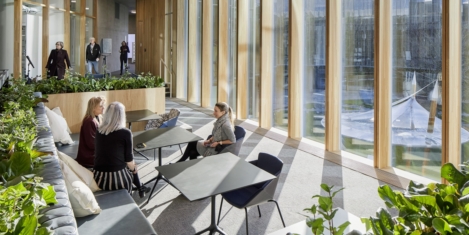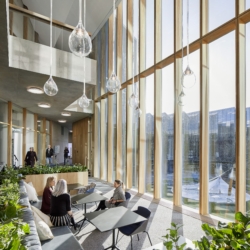To provide the best experiences, we use technologies like cookies to store and/or access device information. Consenting to these technologies will allow us to process data such as browsing behaviour or unique IDs on this site. Not consenting or withdrawing consent, may adversely affect certain features and functions.
The technical storage or access is strictly necessary for the legitimate purpose of enabling the use of a specific service explicitly requested by the subscriber or user, or for the sole purpose of carrying out the transmission of a communication over an electronic communications network.
The technical storage or access is necessary for the legitimate purpose of storing preferences that are not requested by the subscriber or user.
The technical storage or access that is used exclusively for statistical purposes.
The technical storage or access that is used exclusively for anonymous statistical purposes. Without a subpoena, voluntary compliance on the part of your Internet Service Provider, or additional records from a third party, information stored or retrieved for this purpose alone cannot usually be used to identify you.
The technical storage or access is required to create user profiles to send advertising, or to track the user on a website or across several websites for similar marketing purposes.
 Plans are taking shape for the 55th edition of NeoCon (held June 10-12 at THE MART, Chicago), the world’s leading platform for commercial space design, as show management announces a power-list of thought-provoking speakers, dynamic activations, best-in-class brands, and the newest movers and shakers impacting the built environment. The three-day event offers unparalleled opportunities to connect, learn, and experience the latest trends and innovations across verticals, from office to healthcare. (more…)
Plans are taking shape for the 55th edition of NeoCon (held June 10-12 at THE MART, Chicago), the world’s leading platform for commercial space design, as show management announces a power-list of thought-provoking speakers, dynamic activations, best-in-class brands, and the newest movers and shakers impacting the built environment. The three-day event offers unparalleled opportunities to connect, learn, and experience the latest trends and innovations across verticals, from office to healthcare. (more…)

































January 31, 2024
The three biggest disruptors of our time
by Jennifer Bryan • AI, Business, Comment, Environment, JB, Technology